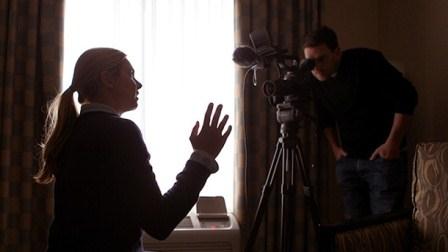Inside America: A Malawian Paints His View Of America

[media-credit name=”National Geographic” align=”alignnone” width=”300″] [/media-credit]I wrote this blog post while sitting at my laptop during the unholy wee hours of an American morning. I was waiting for an early-morning flight home. Although I do realize now that the whole idea of an African chronicling his journey and experience of an entire country is probably as cliché as the missionaries writing their 18th-century journals of the supposedly “dark” continent of Africa.
[/media-credit]I wrote this blog post while sitting at my laptop during the unholy wee hours of an American morning. I was waiting for an early-morning flight home. Although I do realize now that the whole idea of an African chronicling his journey and experience of an entire country is probably as cliché as the missionaries writing their 18th-century journals of the supposedly “dark” continent of Africa.
And like the so-called dark continent, it is so easy to fall into the trap of telling what my favorite Nigerian author, Chimamanda Adichie, terms the “single story.”
I can only imagine how much of a bane it must be for many an African living in the diaspora to constantly face the single solitary narrative of their motherland, a narrative of famine, war, corruption, and AIDS, essentially a narrative of hopelessness.
And very often, the constant focus on this single story of Africa also, inadvertently, creates a single story of America. Ironically it is also one of hopelessness.
I was afraid when I left Malawi to travel to America on work-related business, escorted to the airport by my proud father, who is enjoying his twilight years, and my envious sister, who clearly wished she was boarding the plane.
I felt afraid because of the single story of America that I had come to know and internalize as reality. It was a story of fast-walking, fast-talking, gun-toting, clueless, obese, and paranoid Yankee cry babies who didn’t know how good they had it.
A story of a people with everything at their fingertips and yet living cold, lonely and materialistic existences, insulated from human engagement by their iPhones and iPads while still believing a 1950s truth that America is, instead of was, the best country in the world; and all this while the ominous silhouette of China darkens their dollar bills.
What a story huh?
I left my dark continent, with its rays of sunlight pulsating to the rhythm of the African drum, believing I was going to an even darker country – a darker country where trousers were called pants, where they used miles when the rest of the world uses kilometers, where everyone drove on the wrong side of the road and where school shootings were commonplace.
With memories of America fresh in my mind before my new episode of jetlag, I realize, staring at the taunting cursor on my laptop screen, that this “chronicle” is more than just me capturing images of life in America. It is way more than just sharing the experience of having my first Starbucks coffee and more than just describing the bizarre affair I had with an automated toilet.
This is about painting a picture that should help either confirm or confound my single story of America from where it is now. A story of hopelessness.
And as I relive the memories, the conversations, and the moments of my journey, the things I thought would stick with me – those supposedly important things – are not shaping my view of America at all.
